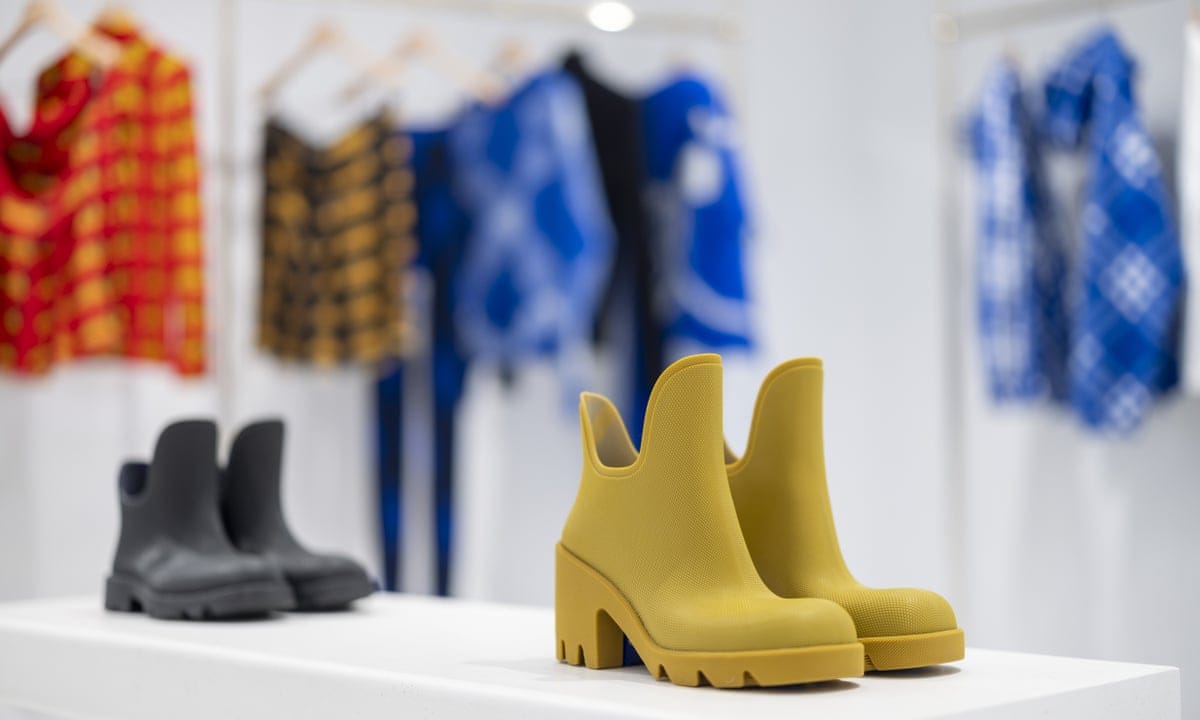Burberry's legacy as a prestigious brand stands unchallenged, with its iconic trenchcoat recognized worldwide. As luxury shopping increasingly values esteemed brands, Burberry emerges among those coveted by many. The label has deep roots in history and authenticity, symbolizing Britishness while promoting a commitment to sustainability through long-lasting garments.
The trenchcoat, an enduring fashion staple, remains prominent on the luxury sector's map. Burberry holds esteemed status alongside elite labels that resonate with power and sophistication beyond mere clothing choices. The brand boasts a rich heritage of 168 years, contributing to its reputation as an outfitter for influential figures such as Scott Polar and Ernest Shackleton.
However, Burberry's strength in coats may overshadow the growing luxury market's focus on accessories like bags and footwear. The brand's association with Britain also poses a challenge to its appeal among continental fashion hubs such as Paris and Milan.
Under designer Christopher Bailey, Burberry experienced a renaissance, reimagining itself through the lens of British culture with appealing references like the Beatles and Princess Margaret. By blending various influences and revitalizing its designs, he created an aspirational yet approachable image that resonated with consumers across different social spheres.
Subsequent designers such as Riccardo Tisci and Daniel Lee sought to steer Burberry towards a cooler, more avant-garde direction. While their efforts aimed to redefine the brand's identity in response to evolving consumer preferences, they struggled to bridge high fashion with mainstream desires effectively.
In recent collections, Burberry has experimented with unconventional venues and atmospheres, drawing inspiration from adventurous backdrops while aiming for a bold statement effect. The challenge lies in striking a balance between innovation and appealing to the brand's loyal customer base.
Burberry now seeks fresh leadership under Joshua Schulman, whose background with Coach and Michael Kors indicates an intention to reinvigorate the brand. Designer Daniel Lee showcases promise through his ability to capture contemporary trends, evident in his impressive work at Bottega Veneta before joining Burberry. His latest collection features desirable pieces that blend classic trench elements with modern aesthetics, albeit with room for improvement in meeting consumer demands effectively.
Ultimately, Burberry's success hinges on creating fashionable products – particularly bags and shoes – that resonate with consumers once more while staying true to its esteemed heritage.
Read next

Ryanair plane had only six minutes of fuel upon Manchester landing, records show
Flight Narrowly Avoids Disaster After Storm Diversion
An inquiry has been launched after a Ryanair flight, struggling against severe winds during storm Amy last week, landed at Manchester Airport with only six minutes’ worth of fuel remaining.
The aircraft had been transporting passengers from Pisa, Italy, to Prestwick, Scotland, on

"Qantas customer data for 5 million exposed as hackers release info post-ransom deadline"
Hackers Leak Personal Data of 5 Million Qantas Customers on Dark Web
A cybercriminal group has released personal records of 5 million Qantas customers on the dark web after the airline did not meet their ransom demand.
The breach is part of a larger global incident affecting over 40 companies,

Investors flee record-high UK stocks as EU set to hike steel tariffs
Investors Withdraw Record Sums from Equity Funds Amid High Market Valuations
Data reveals that investors in the UK have withdrawn an unprecedented amount of money from equity funds over the past three months, driven by concerns over soaring stock market valuations.
According to the latest figures from Calastone, the largest

